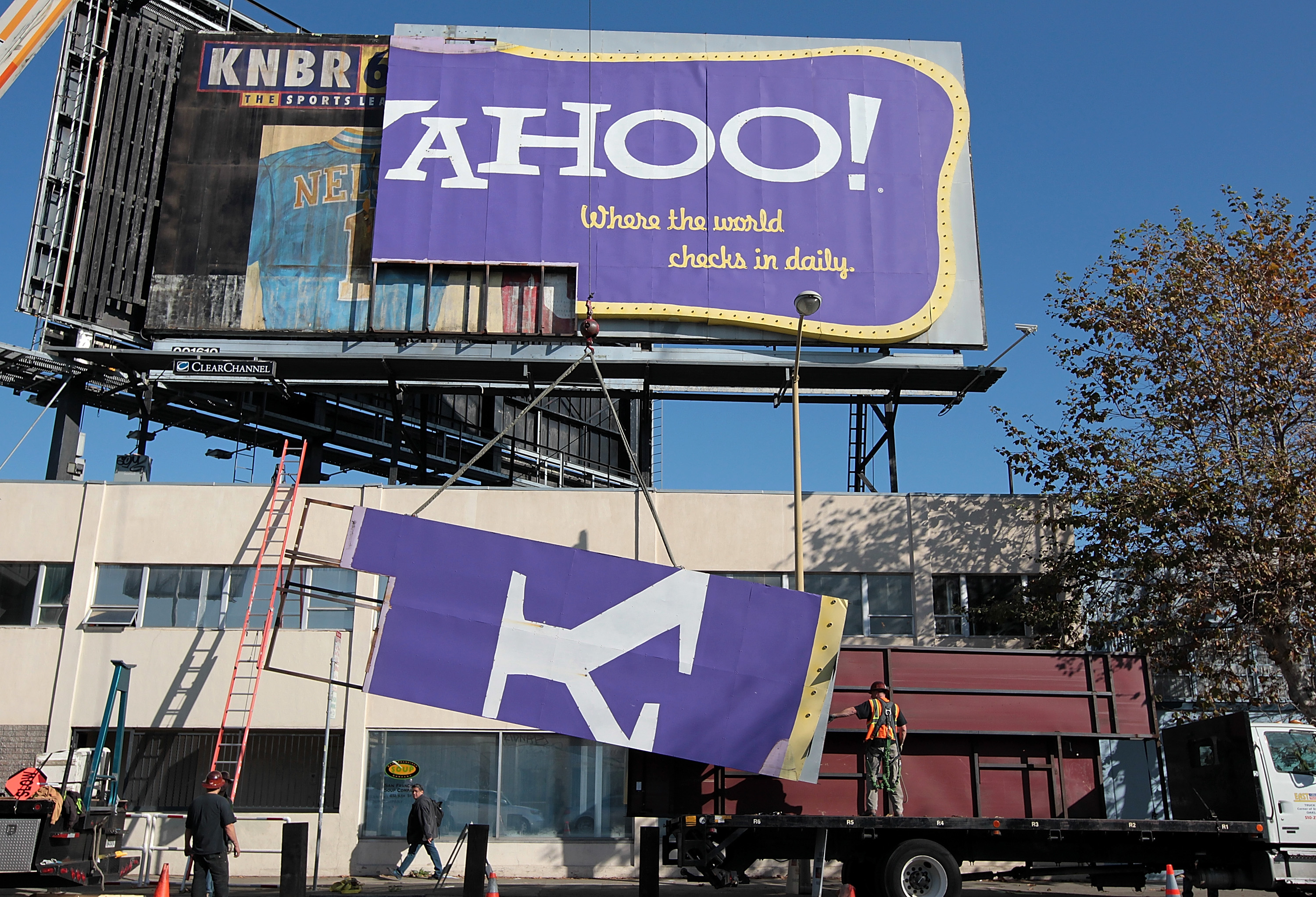Why Verizon wants an ailing Yahoo
Yahoo, once the tech world's brightest star, is finished as an independent company

A free daily email with the biggest news stories of the day – and the best features from TheWeek.com
You are now subscribed
Your newsletter sign-up was successful
The smartest insight and analysis, from all perspectives, rounded up from around the web:
Yahoo, "the front door to the web for an early generation of internet users," is finished as an independent company, said Vindu Goel and Michael de la Merced at The New York Times. The struggling Silicon Valley pioneer agreed this week to sell its core internet business to Verizon Communications for $4.8 billion. The sale punctuates a stunning fall from grace for Yahoo, which at its peak in January 2000 was valued at more than $125 billion. It's also the likely end of the road for CEO Marissa Mayer, who is widely expected to be shown the door when the deal is finalized in early 2017. The former Google wunderkind, who was brought on four years ago to revive Yahoo's fortunes, stands to receive about $57 million in severance for her failed turnaround efforts.
Founded in 1994, Yahoo was once the tech world's brightest star, but it "fell behind the fast-moving internet economy it helped create," said Jack Nicas at The Wall Street Journal. The onetime pacesetter found itself overtaken by nimbler competitors like Google and Facebook, as users moved away from web portals to apps and social networks. In its bid to adapt to the changing times, Yahoo developed a kind of split personality, said Timothy B. Lee at Vox. Mayer tried to reboot Yahoo as a tech innovator, spending more than $2 billion acquiring some 50 startups. But she also "doubled down" on efforts to build a top media company, hiring Katie Couric, for a reported $10 million a year, and other well-known journalists. This bifurcated strategy only amplified the confusion about the company's identity, and failed to staunch the bleeding of talent and revenue. Soon, the company was worth "less than the sum of its parts."
The Week
Escape your echo chamber. Get the facts behind the news, plus analysis from multiple perspectives.

Sign up for The Week's Free Newsletters
From our morning news briefing to a weekly Good News Newsletter, get the best of The Week delivered directly to your inbox.
From our morning news briefing to a weekly Good News Newsletter, get the best of The Week delivered directly to your inbox.
So what could Verizon possibly want with this ailing dinosaur? asked Brian Barrett at Wired. Oddly enough, buying Yahoo is the telecom juggernaut's "best shot at staying relevant." Despite Yahoo's flagging fortunes, it is still "a surprisingly popular content company," drawing roughly 1 billion users every month to its search engine, email portal, news sites, and services like Flickr and Tumblr. Verizon, with its vast mobile network, already controls some of the "pipes" through which a great deal of online content flows; owning Yahoo will now give it control over what comes out of the faucet too.
Verizon plans to pair Yahoo's assets with those of another web trailblazer, AOL, which it bought last year for $4.4 billion, said Steve Mollman at Quartz. Verizon hopes to mesh Yahoo's content with AOL's ad technology to challenge Google's and Facebook's dominance in online advertising. But "Verizon has a long way to go." AOL holds just 1.8 percent of the $69 billion digital ad market, while Yahoo's share is about 3.4 percent. "Google and Facebook together claim about half of it." Color me skeptical, said Erin Griffith at Fortune. Both Google and Facebook are incredibly profitable because they've figured out how to make money on digital content "without actually getting into the messy, expensive business of producing it." Sorry, but "combining two internet has-beens doesn't make a Facebook-killer."
A free daily email with the biggest news stories of the day – and the best features from TheWeek.com
-
 The ‘ravenous’ demand for Cornish minerals
The ‘ravenous’ demand for Cornish mineralsUnder the Radar Growing need for critical minerals to power tech has intensified ‘appetite’ for lithium, which could be a ‘huge boon’ for local economy
-
 Why are election experts taking Trump’s midterm threats seriously?
Why are election experts taking Trump’s midterm threats seriously?IN THE SPOTLIGHT As the president muses about polling place deployments and a centralized electoral system aimed at one-party control, lawmakers are taking this administration at its word
-
 ‘Restaurateurs have become millionaires’
‘Restaurateurs have become millionaires’Instant Opinion Opinion, comment and editorials of the day
-
 The pros and cons of noncompete agreements
The pros and cons of noncompete agreementsThe Explainer The FTC wants to ban companies from binding their employees with noncompete agreements. Who would this benefit, and who would it hurt?
-
 What experts are saying about the economy's surprise contraction
What experts are saying about the economy's surprise contractionThe Explainer The sharpest opinions on the debate from around the web
-
 The death of cities was greatly exaggerated
The death of cities was greatly exaggeratedThe Explainer Why the pandemic predictions about urban flight were wrong
-
 The housing crisis is here
The housing crisis is hereThe Explainer As the pandemic takes its toll, renters face eviction even as buyers are bidding higher
-
 How to be an ally to marginalized coworkers
How to be an ally to marginalized coworkersThe Explainer Show up for your colleagues by showing that you see them and their struggles
-
 What the stock market knows
What the stock market knowsThe Explainer Publicly traded companies are going to wallop small businesses
-
 Can the government save small businesses?
Can the government save small businesses?The Explainer Many are fighting for a fair share of the coronavirus rescue package
-
 How the oil crash could turn into a much bigger economic shock
How the oil crash could turn into a much bigger economic shockThe Explainer This could be a huge problem for the entire economy